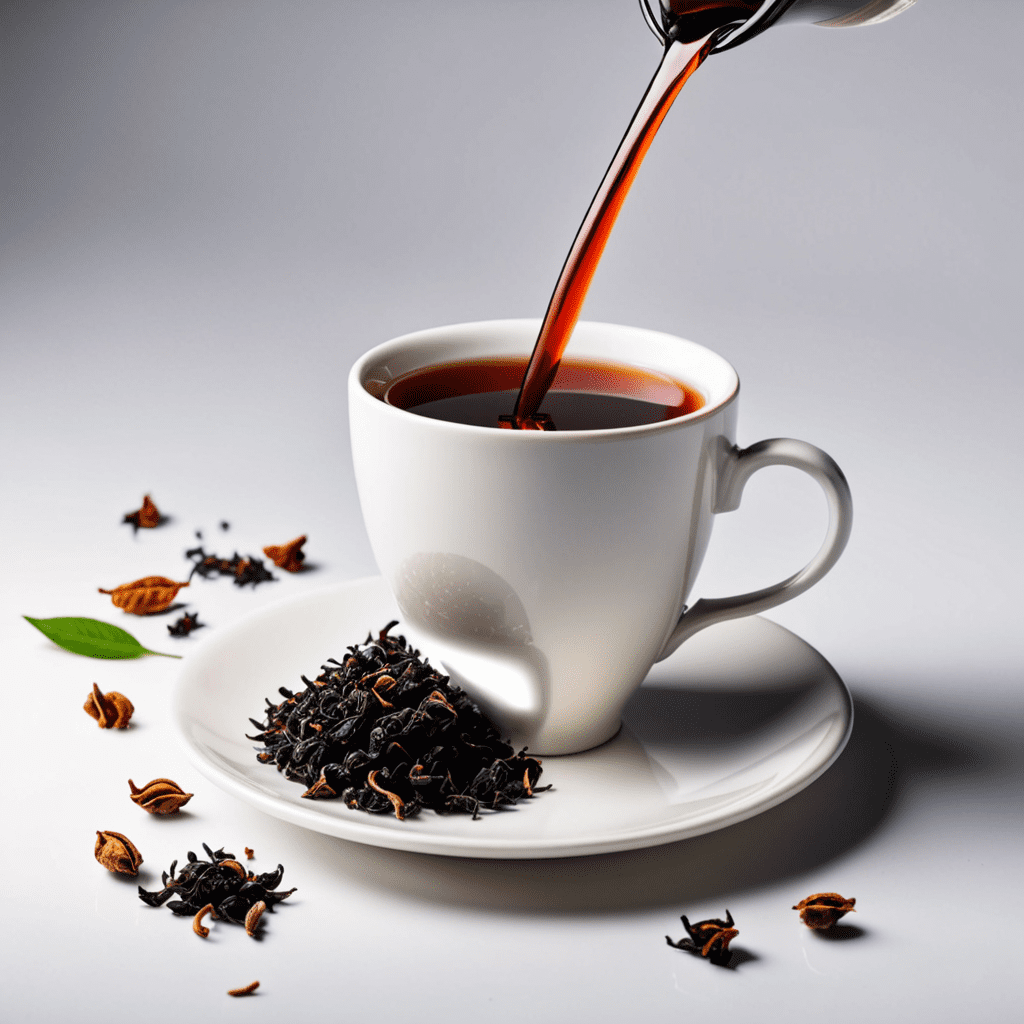Unveiling the Energizing Effects of Black Tea on Your Mind and Body
The Power of Black Tea
Black tea, a beloved beverage among tea enthusiasts, is known for its rich flavor and energizing properties. But just how long does black tea keep you awake? In this article, we delve into the science behind black tea and its impact on your sleep cycle.
The Role of Caffeine
One of the key components in black tea that contributes to its stimulating effects is caffeine. Although the exact amount of caffeine in black tea can vary, on average, an 8-ounce cup of black tea contains around 40-70 milligrams of caffeine.
How Caffeine Affects Wakefulness
Caffeine is a natural stimulant that enhances alertness and reduces drowsiness by binding to certain receptors in the brain. It blocks the neurotransmitter adenosine, which promotes sleep and relaxation, resulting in increased wakefulness and concentration.
The Duration of the Stimulating Effect
The duration of black tea’s stimulating effect can vary depending on several factors, including an individual’s metabolism, tolerance to caffeine, and the amount of tea consumed. On average, the energizing effects of black tea can last anywhere from 3 to 5 hours.
Individual Variations
It’s important to note that individuals may experience variations in how long the stimulating effects of black tea last. Some people may feel the effects for a longer duration, while others may experience a shorter duration of wakefulness.
Influencing Factors
Several factors can influence how long black tea keeps you awake, such as:
- The amount of black tea consumed
- Personal sensitivity to caffeine
- The time of day the tea is consumed
- Other substances consumed (food, medication, etc.)
Timing Matters
The time of day you consume your black tea can impact its wakefulness effects. Drinking black tea late in the day or close to bedtime may interfere with your ability to fall asleep. It is generally recommended to avoid consuming black tea, or any caffeinated beverage, within a few hours of bedtime to ensure a good night’s rest.
Personal Tolerance
Each individual has a different tolerance to caffeine. Some people may be more sensitive, while others may be able to tolerate higher amounts without experiencing sleep disturbances. Understanding your own sensitivity to caffeine can help you make informed decisions about when and how much black tea to consume.
Frequently Asked Questions (FAQ)
Q: Is black tea better than coffee for staying awake?
A: The caffeine content in black tea is generally lower than that in coffee. However, the stimulating impact can vary depending on factors such as personal tolerance and the amount consumed. It’s best to choose the beverage that suits your preferences and sensitivity to caffeine.
Q: Can black tea help with productivity?
A: Black tea can increase alertness and improve focus, which can enhance productivity. However, it’s important to note that excessive consumption or consuming tea too close to bedtime may negatively affect sleep quality, which can impact overall productivity.
Q: Are there any non-caffeinated alternatives for staying awake?
A: If you prefer to avoid caffeine altogether, there are several non-caffeinated alternatives to black tea that can provide a pick-me-up. Herbal teas such as peppermint, chamomile, or lemon balm can offer a soothing effect without the stimulating properties of caffeine.
Q: How can I reduce the impact of caffeine in black tea on my sleep?
A: If you are sensitive to caffeine or concerned about its impact on your sleep, you can try the following strategies:
- Limit your consumption of black tea, especially in the evening.
- Opt for decaffeinated black tea options.
- Experiment with herbal teas that do not contain caffeine.
- Ensure you have a consistent sleep routine and create a conducive sleep environment.
Remember, each individual is unique, and understanding your body’s response to caffeine will help you make informed choices to prioritize both wakefulness and quality sleep.


